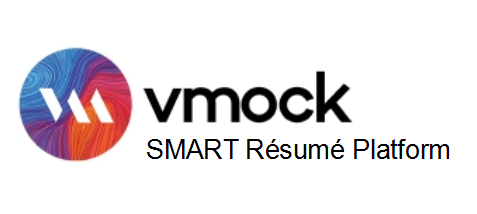Interviews are awkward. Interviews are stressful. No one is innately good at behavioral interviews.
When students are struggling with the job search process, career counselors will often try and figure the “breakdown” point in the process:
Experienced graduate students often think they are better at behavioral interviews than they really are. Often this is because it has been years since they have had to do a first-round interview. Perhaps when they did interview it was more technical or the person was already known to them so it was conversational. When it comes to the very uncomfortable atmosphere of a behavioral interview with a stranger or new acquaintance, nerves kick in.
If you think you can do well in a behavioral interview without practice I would argue that you shouldn’t take that chance.
Think about the hardest class you have ever taken. Many business students would think of their Statistics class. Would you take an oral exam in stats without studying? Chances are that you probably don’t want to work in the subject area of your hardest class. Would you take an oral exam without studying to determine whether or not you get to work in your chosen profession? Of course not.
If behavioral interviews are so uncomfortable for people, why do companies insist on using these questions?
Because they are “safe” from a legal standpoint. Companies are not allowed to ask questions about:
- Age
- Race
- Ethnicity
- Color
- Gender
- Sex
- Sexual orientation or gender identity
- Country of origin
- Birthplace
- Religion
- Disability
- Marital status
- Family status
- Pregnancy
Angela Smith, MBA writes: Keep in mind that many times, illegal questions aren’t asked with ill intent. An inexperienced interviewer may say something like, “That’s a beautiful accent. Where are you from?” as a way to spark conversation. She might not realize the question is illegal, or may not know how to frame the question in a legal way. But if you feel that a question is inappropriate, you can definitely ask the interviewer to clarify how it relates to the job. You are also within your rights to tell the interviewer that you’re not willing to answer a question that makes you uncomfortable. And if a question is truly offensive and discriminatory, you have the option of filing a complaint with the Equal Employment Opportunity Commission. 1.
Behavioral Interview questions are seen as the best way to judge future performance.
According to the Society for Human Resource Management (SHRM), Behavioral interviewing focuses on a candidate’s past experiences by asking candidates to provide specific examples of how they have demonstrated certain behaviors, knowledge, skills, and abilities. Answers to behavioral interview questions should provide verifiable, concrete evidence as to how a candidate has dealt with issues in the past. This information often reveals a candidate’s actual level of experience and his or her potential to handle similar situations in your organization. Behavioral interview questions tend to be pointed, probing and specific. 2.
How to improve your behavioral interview answers.
Behavioral Interview Questions start with a phrase like this:
- “Tell me about a time when…?”
- “How would you handle a situation if…?”
- “How have you dealt with [situation X] in the past?
and are usually related to one of the following topics:
- Communication
- Teamwork
- Business Acumen
- Negotiations and Selling
- Problem Solving
- Leadership
- Organization
- Perseverance
- Working under pressure
- Confidence
What a coincidence that these are the Top 10 skills that employers are looking for in every new hire.
So how do you answer these questions? STAR – stands for Situation, Task, Action, Result.
- Situation: The context for a past experience, often a problem or challenge that you faced.
- Task: Your responsibility in the situation and what was required of you.
- Activity: The action(s) you took in the situation.
- Result: The outcome of your action(s).
Check out this article on How to use STAR and Why STAR Works.
Many of our students know all of this and STILL go into interviews and try to “wing it”!
If I walked up to you on the street and said “Tell me a joke about a clown” most people will panic. What kind of person has a story like that ready to go? Not many people at all. But if I emailed you and said: “I want to meet you this Friday and at that meeting, I would like to hear a joke about a clown” (although crazy) you have time to prepare.
So if you know what an employer is going to ask you, you know how they are going to ask the question, and you know how you should structure your answer, what’s left?
PREPARE
Create a spreadsheet and think about the stories that you would tell that are associated with each of the ten topics above.
| TOPIC | SITUATION | TASK | ACTION | RESULT |
| Communication | ||||
| Communication | ||||
| Teamwork | ||||
| Teamwork | ||||
| Leadership | ||||
| Leadership | ||||
| Problem Solving | ||||
| Problem Solving | ||||
| etc… |
It’s a good idea to have at least two stories or past experiences for each topic. If an interviewer asks you a question like “Tell me about a time that a team member was not pulling their weight?” and you are thinking EASY – Group Project! You proceed to discuss the Situation, Task, Action that you took, and the Result of that action. You sit back and relax waiting for the next question. The interviewer finishes their notes and says ” Tell me about a time that you worked with someone that you didn’t get along with.” Now the ONLY thing you can think of is the same Group Project. By preparing stories in advance you have a back-up plan for every topic.
You don’t need to remember the whole story. Like a joke, remembering the set-up (Situation) and the punch line (result). This is your experience so you can fill in the Task and Action from your head using your own words.
So what’s left? PRACTICE

We highly recommend Mock Interviews. You can start the process cold if you want but get a coach that knows what they are doing that will actually give you feedback. That’s one of the benefits of having access to Career Counselors at the Rockwell Career Center. We can conduct a mock interview and even tailor it to a specific job posting or company for you.
“I’ll just interview for jobs I’m not interested in.” – Please don’t do this. First, the interviewer is not going to give you feedback and asking them to do so puts them in a very uncomfortable position. Secondly, by interviewing for a position you aren’t interested in, you are taking an interview spot from someone that actually wants the job.

Don’t want to do a Mock Interview in person? Use Interviewing.com – formerly InterviewStream .
Interviewing.com – formerly InterviewStream, a free service for Bauer students, helps Bauer students improve their interviewing skills. This easy-to-use online program uses on-screen, videotaped interview scenarios developed by employment professionals.
Need help with any of these steps? Make an appointment to see a Career Counselor at the Rockwell Career Center.
- 5 Illegal Interview Questions and How to Dodge Them
- A Guide to Behavioral Interviewing, SHRM, 2016.











